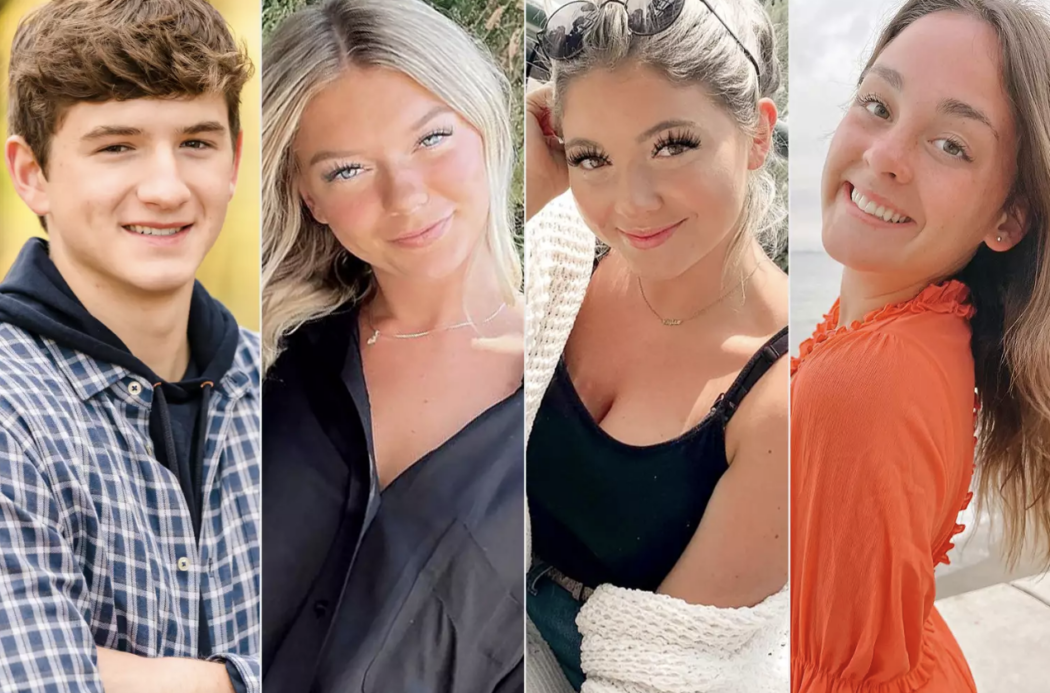Near the conclusion of 2022, a quadruple homicide in Moscow, Idaho — the home of the University of Idaho — shocked the nation. Four college students, Xana Kernodle, 20, Ethan Chapin, 20, Madison Mogen, 21, and Kaylee Gonclaves, 21, were found dead in their college home on Nov. 13.

The murders sparked nationwide interest, with YouTube and TikTok creators making videos on the case and what they think happened. Average American citizens turned into detectives seemingly overnight. Tips given to the police from the vast media attention helped law enforcement come to an arrest on Dec. 30, 2022. Bryan Kohberger, 28, was arrested on four counts of homicide right here in Pennsylvania in Chestnuthill Township.
However, while some tips were helpful, some of the content circulating on social media was not, and even led the Idaho police department to tell people to stop creating their own theories about the case as these fake stories gained intense notoriety all over the internet.
The Internet is Infatuated with True Crime
True crime is a popular genre in the media, especially with TV shows, documentaries, YouTube and TikTok channels and podcasts. True crime content creators base their entire careers on the deaths of real people and make money off it. While the ethicality of this type of content can be discussed, some true crime creators have devoted their content to helping those who have tragically died get the media attention they deserve or even helping old cold cases turn up new leads. An example of this would be the popular podcast “Crime Junkie,” led by Ashley Flowers.

In this podcast, she only discusses odd cold cases and provides plenty of resources for listeners to share information they might have relating to the case. Her podcast has gone on to help victims’ families and bring justice to those who can’t advocate for themselves.
Idaho Murders Accusatory Internet Sleuths.
The issue with true crime enthusiasts in the case of the Idaho quadruple murders is the dissemination of misinformation and accusatory content. Many TikTokers have become self-proclaimed “sleuths,” and while this kind of content is technically free speech, it can reach a point where it teeters on defamation.
There has already been an instance of legal action between an Idaho murder TikToker and a real-life person. University of Idaho professor Rebecca Scofield accused TikTok creator Ashley Guillard of defamation. Allegedly this TikToker accused Scofield of being involved in the murders and having a relationship with one of the victims. Guillard posted over 20 videos regarding her theories of Scofield, causing Scofield to take legal action.
Scofield is not the only person in the Idaho case that has fallen victim to false accusations and theories. Friends of the victims, roommates and people seen on tapes from the night of the murders circulating on the internet have all been accused by thousands of TikTok and YouTube content creators.
What we don’t know about the Idaho murders.
The internet has lost sight of the distinction between user-generated content and news. A case like the Idaho murders captures the media attention because it relates to young people and is gruesome and puzzling. However, something the internet fails to recognize is that this case is still a pending investigation. Yes, there is an arrest and, no doubt, a lot of evidence available to the public. However, since the investigation is still open, and the United States law says that a person is innocent until proven guilty in a fair trial of law –– there is a lot that we, as a public, do not know and thus cannot comment on.
The following weeks after the murder, plenty of internet users created content basing their accusations on tarot cards and “spirit boxes.” Creators were frustrated and accused the police of moving too slowly. However, since the arrest of Kohberger, the public now knows that the police were onto him shortly after the murders. This kind of information was held close by law enforcement to create air-tight reasoning for the arrest and for warrants.

Like their lead on Kohberger, the police force has much more information than we will ever know, and it will probably stay that way until the trial begins. The internet will always be hungry for more, especially with cases like this, but it’s important to realize that this is not just an episode or a rabbit hole on TikTok; this was four bright, young individuals that lost their lives far too soon. Mogen, Gonclaves, Chapin and Kernodle were college students just like us, with families who grieve the lives they should’ve lived. The roommates, the friends and the accused are all people who, instead of getting to grieve, had to watch devastating videos of people accusing them of brutally murdering their loved ones.
So if you find yourself in a position to want to consume content regarding theories and what user439290 on TikTok thinks, maybe try to head to the internet and look up reliable news sources like local papers or the New York Times to get more accurate, less inflammatory information.
Have we as people forgotten the “true” in true crime?





